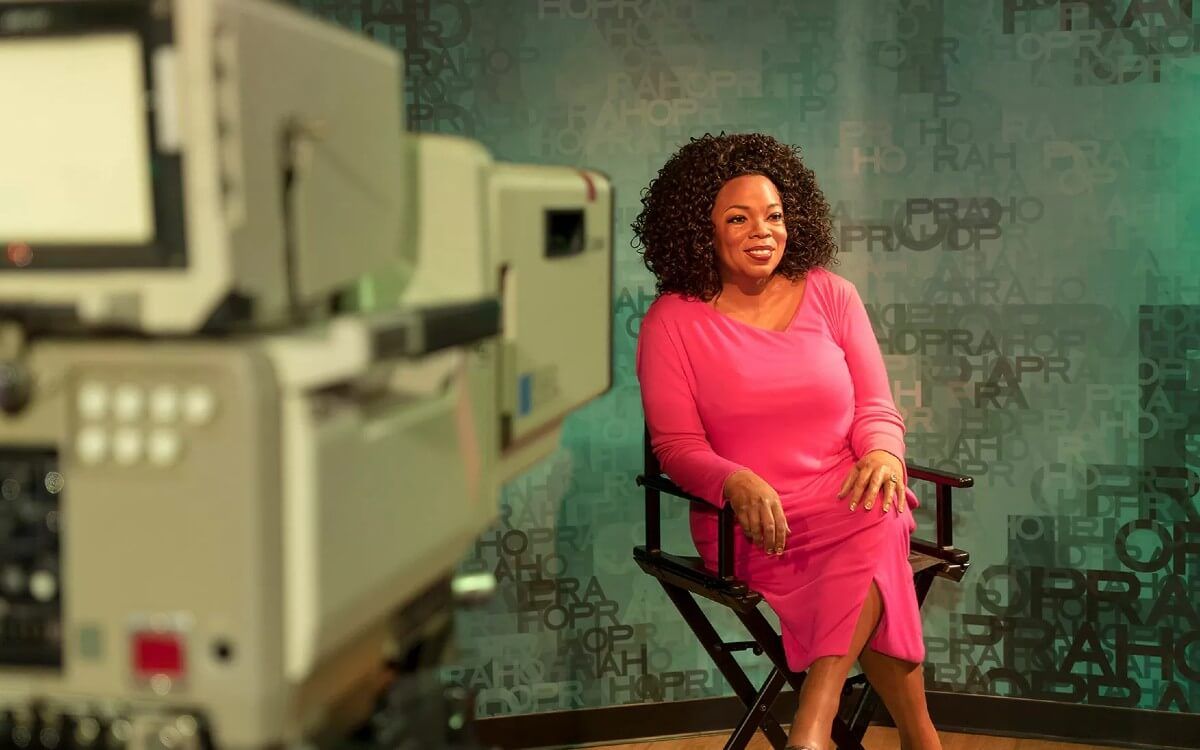Oprah: the all-time most influential person?

When Oprah Winfrey tells people, “I am here to ask you to think seriously,” apparently they do. She actually said this in 2007, and her audience duly considered who would make the ideal US president. Barack Obama, the nation’s first black president, was there. The reason Oprah is still one of the most powerful individuals in the world is due to the unique position she has attained since her history-making show debuted on US national television for the first time on September 8, 1986.
The 25-year run of the iconic “The Oprah Winfrey Show” saw the host use her rising fame to teach viewers how to make changes in their own lives rather than to primarily affect people’s lives. Oprah drew on her personal experiences and made herself available for scrutiny, much like a preacher presenting a parable to demonstrate a moral or spiritual lesson. She inspired her audience to take responsibility for themselves and to self-actualize—fulfill their own ability and potential.It was a totally different message from that of early 20th-century civil rights advocates. Oprah placed more weight on an individual’s drive and initiative than on the unity and force of a group endeavor.
Individualistic philosophy
Oprah’s individualistic mindset fit in nicely with the times. After the 1964 Civil Rights Act, which prohibited discrimination on the basis of race, color, religion, sex, and national origin, and the less significant 1965 Voting Rights Act, which forbade discrimination in voting, her show debuted at the beginning of the third decade. Riots in numerous major cities during the first decade following the civil rights movement served as a warning that racial discrimination had not been completely eradicated from American culture despite the legal ban on it. The 1968 murder of Dr. Martin Luther King Jr. ignited new upheaval.
Long after the dust had settled, prominently successful black people began to emerge as if as live proof that once-insurmountable challenges might indeed be surmounted. The Cosby Show, which is currently the most watched sitcom in the nation, starred Bill Cosby. One of the most commercially successful movie stars in the world was Eddie Murphy thanks to the 1984 film “Beverly Hills Cop.” Undoubtedly, Michael Jackson was the greatest entertainer in the entire world. Mike Tyson won the heavyweight world championship in boxing two months after Oprah’s program debuted, making him arguably the most celebrated athlete since Muhammad Ali. Michael Jordan was headed for the pinnacle of his cultural influence.
The 1980s’ absence of celebrities served as ideal representations of the Reagan era, which was characterized by low taxes, free markets, entrepreneurial drive, and individualism. Oprah and the other glamorous black people served as glaring reminders of the achievements of black Americans who had persisted and refused to let the nation’s pervasive racism thwart their ambitions. One writer mockingly referred to Oprah as “Horatio Alger for our times,” a reference to the 19th-century novelist whose works conveyed the idea that poverty can be overcome through perseverance.
This does not imply that Oprah shunned the race issue. Oprah entered risky terrain by featuring citizens of Forsyth County, Georgia, just months after going national. Black people had not lived in Forsyth since 1912, when white people burned down black churches and schools after accusing three black men of raping a white adolescent and having them all executed. White folks who blatantly refused to accept Black people into their communities were questioned by Oprah. One woman remarked, “We have a right to have a white community”. Oprah kept asking questions without ceasing.
Troublemaking and Provocation
When it came to mischief and provocation, Oprah was unmatched. She addressed racism, homophobia, addiction, infidelity, and child abuse, sometimes drawing from her own experience as a victim. No social or personal topic was off-limits. It was a novel kind of program. She targeted those in large business, politics, and the entertainment industry. Nobody was untouched.
However, her core belief that people should help themselves did not conflict with her partisanship. They wouldn’t achieve anything if they whined and complained about the world. They would return to their starting point if they depended on others. In this way, she agreed with the conservative author Shelby Steele who thought that by the 1980s’ conclusion, racism in America was more like an annoyance that could be swatted than a rampaging lion that needed to be slaughtered.
It made sense to Steele—and to Oprah—not to waste time and resources uniting to battle a beast that had already been subdued. African Americans should instead concentrate on improving as people. Oprah was and still is a guru for many people, living by the motto “Live Your Best Life.” She noticed that this individualist mentality was permeating society 35 years ago, for whatever reason.
Help Thyself
Oprah will fare better in history than a number of other African Americans who were once admired but ultimately despised. The pioneering Bill Cosby was degraded after accusations of sexual assault were made against him (his conviction was overturned earlier this year.) Mike Tyson was sentenced to ten years in jail in 1992 after being found guilty of rape. Michael Jackson passed away in 1999, but after his passing, he was accused of sexually abusing two guys while they were young. Oprah, 67, has faced criticism but has largely survived unharmed. She even briefly received consideration as a presidential candidate after hinting in 2018 that she would run for office.
Oprah once worked as a performer. However, she went on to become a tycoon, making her success story one to remember. Even if she is a symbol, Oprah is not the norm: On both sides of the Atlantic, black women are still underrepresented in positions of authority in both the public and business sectors. Others may point to experiences of discrimination, stereotyping, and more structural factors, such as differences in the education system and the job market that have persisted over the years. Oprah herself may explain this as the result of a lack of confidence, ambition, self-esteem, and peer support. Oprah’s strategy frequently minimizes the influence of institutional barriers.
Oprah hasn’t made an effort to alter society. She hasn’t even attempted to influence others. She has attempted to influence individuals to alter themselves and been successful. Her unique quality is that she is neither a zealot nor a populist. She doesn’t have an otherworldly quality. She simply intrudes into people’s life by speaking bluntly and honestly without bombast or feigned virtue. Even she probably is unaware of the extent to which it has allowed her to alter countless lives.
She is so well known by her first name that it’s unlikely anyone else has ever been quite like her. Her influence is felt everywhere; it is all-pervasive. If you believe I’m exaggerating, consider someone who has influenced so many people, for good or evil – a politician, a religious figurehead, or an entertainment — and whose influence will undoubtedly outlive her.





Leave a Reply
You must be logged in to post a comment.